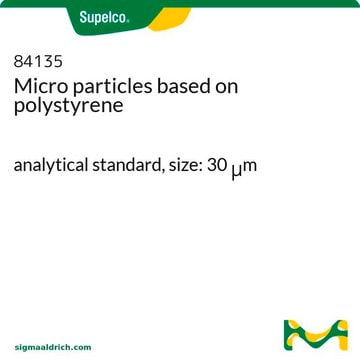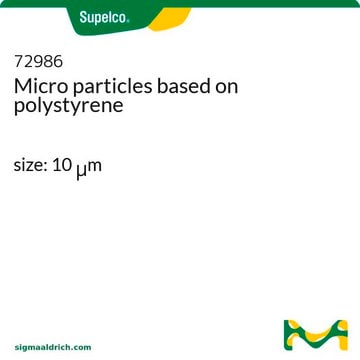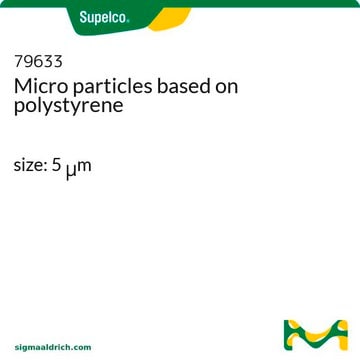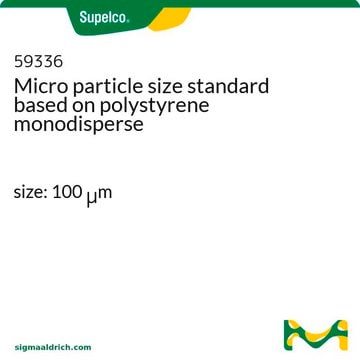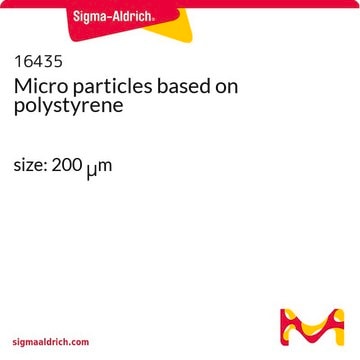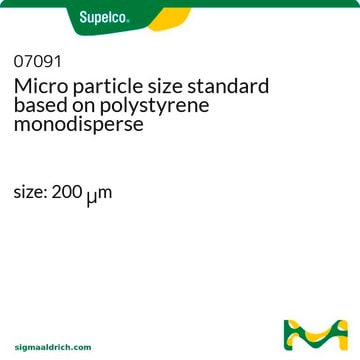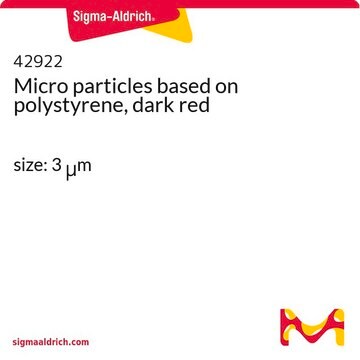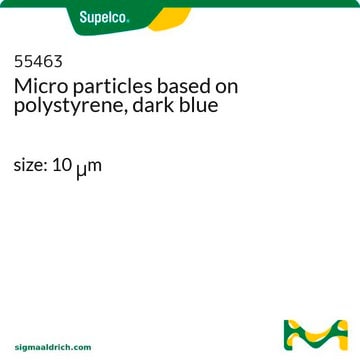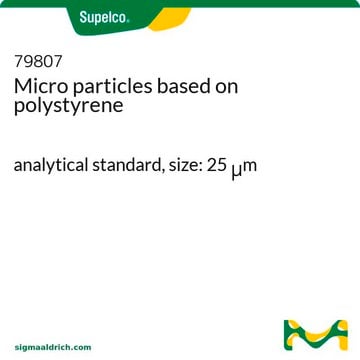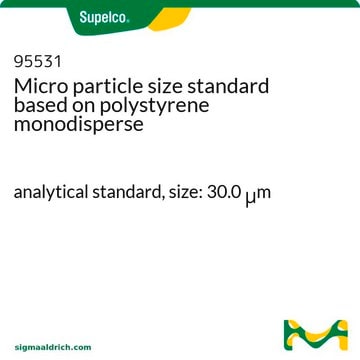56969
Micro particles based on polystyrene, dark red
size: 100 μm
Synonym(s):
Latex beads from PS, dark red
Sign Into View Organizational & Contract Pricing
All Photos(1)
About This Item
Recommended Products
Quality Level
form
aqueous suspension
crosslinking
2 % cross-linked
concentration
5% (solids)
density
1.05 g/cm3 (density of particles)
storage temp.
2-8°C
Looking for similar products? Visit Product Comparison Guide
Related Categories
Application
Micro particles based on polystyrene, dark red, 100 μm (latex beads) may be used for flow cytometry calibration.
Storage Class Code
11 - Combustible Solids
WGK
WGK 3
Flash Point(F)
Not applicable
Flash Point(C)
Not applicable
Personal Protective Equipment
dust mask type N95 (US), Eyeshields, Gloves
Choose from one of the most recent versions:
Already Own This Product?
Find documentation for the products that you have recently purchased in the Document Library.
Customers Also Viewed
Ethan Schonbrun et al.
Lab on a chip, 12(2), 268-273 (2011-11-01)
The combination of microscopy and flow cytometry enables image based screening of large collections of cells. Despite the proposition more than thirty years ago, adding high resolution wide-field imaging to flow cytometers remains challenging. The velocity of cells in flow
K Vorauer-Uhl et al.
Cytometry, 39(2), 166-171 (2000-02-19)
An essential parameter that describes the quality of liposome suspensions is the mean size, respectively the size distribution. Currently several analytical methods including laser light scattering techniques (LLST) are being employed. Here we present an alternative technique using flow cytometry
Márta Simon et al.
Water research, 142, 1-9 (2018-05-29)
This paper presents a method for microplastic (MP) mass quantification using a Focal Plane Array-based Fourier Transform Infrared imaging technique. It discusses the issue that particle number is not a conserved base quantity and hence less suited than mass to
Clare L Walker et al.
Cytometry. Part B, Clinical cytometry, 70(3), 154-162 (2006-03-31)
We have previously reported a flow rate calibration method for the determination of absolute CD4(+) T-lymphocyte counts that removes the need for the addition of latex beads to each sample. However, a limitation with this approach is that a calibration
Our team of scientists has experience in all areas of research including Life Science, Material Science, Chemical Synthesis, Chromatography, Analytical and many others.
Contact Technical Service
